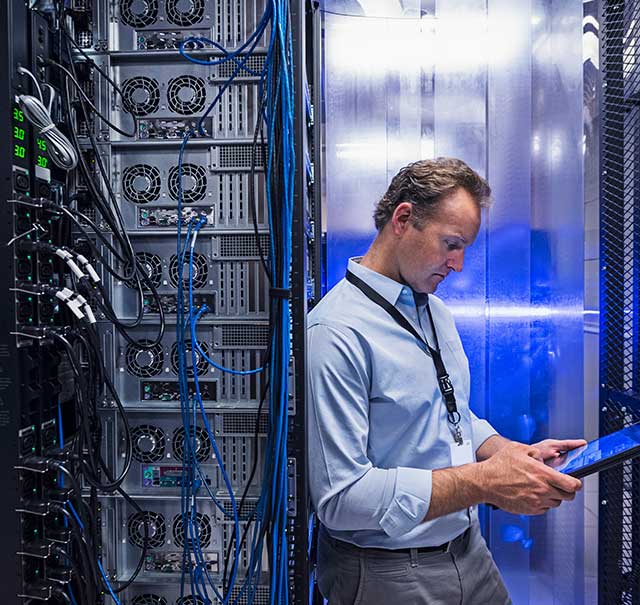


What is a Data Center?
Data Center Explained
- A data center is a physical facility that houses an organization’s routers, switches, servers, firewalls, and other components that enable critical applications and store and process data.
- Modern data centers are virtual infrastructures that support applications and communicate data across on-premise and cloud environments.



The shift to distributed data centers creates challenges
Traditional data centers were built with siloed infrastructure layers, purpose-built hardware, and fragmented management, resulting in complex deployment models and operations.
- 操作复杂,大多数组织都disparate network architectures and management tools with multiple switching hardware platforms, operating systems, and licensing or subscription plans.
- Slow service delivery/SLAs – IT spends countless hours on infrastructure requests and manual tasks, while stakeholders demand a faster cloud-like experience.
- Difficulty troubleshooting – The lack of visibility across both the physical and virtual networks means that IT spends about 70% of their time trying to identify and diagnose issues.
Why choose Aruba’s data center solution?
Aruba’s architectural approach is edge-centric, cloud-enabled, and data-driven.
TheAruba CX switching portfoliois designed for today’s demanding, evolving data center networks. Cutting-edge hardware, a cloud-native operating system, and intuitive management tools reduce risk, improve IT efficiency, and ensure networks are always available. Learn more aboutAruba data center networking.
Aruba Fabric Composer是一个聪明,由api驱动、软件定义或chestration tool that simplifies and accelerates leaf-spine network fabric provisioning across rack-scale compute and storage infrastructures — increasing efficiencies and improving productivity for network operators and server and virtualization admins.






